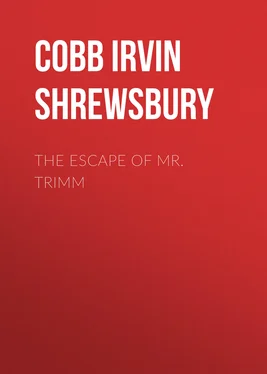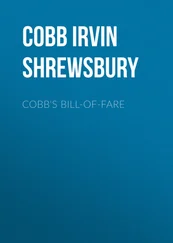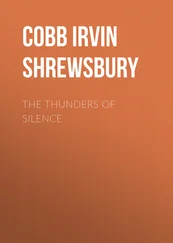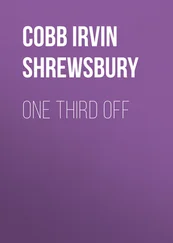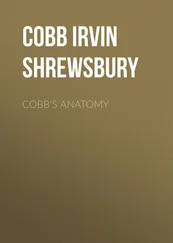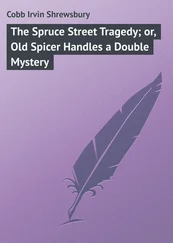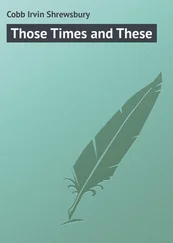Irvin Cobb - The Escape of Mr. Trimm
Здесь есть возможность читать онлайн «Irvin Cobb - The Escape of Mr. Trimm» — ознакомительный отрывок электронной книги совершенно бесплатно, а после прочтения отрывка купить полную версию. В некоторых случаях можно слушать аудио, скачать через торрент в формате fb2 и присутствует краткое содержание. Жанр: foreign_prose, Классический детектив, foreign_detective, foreign_antique, на английском языке. Описание произведения, (предисловие) а так же отзывы посетителей доступны на портале библиотеки ЛибКат.
- Название:The Escape of Mr. Trimm
- Автор:
- Жанр:
- Год:неизвестен
- ISBN:нет данных
- Рейтинг книги:4 / 5. Голосов: 1
-
Избранное:Добавить в избранное
- Отзывы:
-
Ваша оценка:
- 80
- 1
- 2
- 3
- 4
- 5
The Escape of Mr. Trimm: краткое содержание, описание и аннотация
Предлагаем к чтению аннотацию, описание, краткое содержание или предисловие (зависит от того, что написал сам автор книги «The Escape of Mr. Trimm»). Если вы не нашли необходимую информацию о книге — напишите в комментариях, мы постараемся отыскать её.
The Escape of Mr. Trimm — читать онлайн ознакомительный отрывок
Ниже представлен текст книги, разбитый по страницам. Система сохранения места последней прочитанной страницы, позволяет с удобством читать онлайн бесплатно книгу «The Escape of Mr. Trimm», без необходимости каждый раз заново искать на чём Вы остановились. Поставьте закладку, и сможете в любой момент перейти на страницу, на которой закончили чтение.
Интервал:
Закладка:
Soon after sunrise a boy came riding a horse down a faintly traced footpath along the creek, driving a cow with a bell on her neck ahead of him. Mr. Trimm's ears caught the sound of the clanking bell before either the cow or her herder was in sight, and he limped away, running, skulking through the thick cover. A pendent loop of a wild grapevine, swinging low, caught his hat and flipped it off his head; but Mr. Trimm, imagining pursuit, did not stop to pick it up and went on bareheaded until he had to stop from exhaustion. He saw some dark-red berries on a shrub upon which he had trod, and, stooping, he plucked some of them with his two hands and put three or four in his mouth experimentally. Warned instantly by the acrid, burning taste, he spat the crushed berries out and went on doggedly, following, according to his best judgment, a course parallel to the railroad. It was characteristic of him, a city-raised man, that he took no heed of distances nor of the distinguishing marks of the timber.
Behind a log at the edge of a small clearing in the woods he halted some little time, watching and listening. The clearing had grown up in sumacs and weeds and small saplings and it seemed deserted; certainly it was still. Near the center of it rose the sagging roof of what had been a shack or a shed of some sort. Stooping cautiously, to keep his bare head below the tops of the sumacs, Mr. Trimm made for the ruined shanty and gained it safely. In the midst of the rotted, punky logs that had once formed the walls he began scraping with his feet. Presently he uncovered something. It was a broken-off harrow tooth, scaled like a long, red fish with the crusted rust of years.
Mr. Trimm rested the lower rims of his handcuffs on the edge of an old, broken watering trough, worked the pointed end of the rust-crusted harrow tooth into the flat middle link of the chain as far as it would go, and then with one hand on top of the other he pressed downward with all his might. The pain in his wrists made him stop this at once. The link had not sprung or given in the least, but the twisting pressure had almost broken his wrist bones. He let the harrow tooth fall, knowing that it would never serve as a lever to free him—which, indeed, he had known all along—and sat on the side of the trough, rubbing his wrists and thinking.
He had another idea. It came into his mind as a vague suggestion that fire had certain effects upon certain metals. He kindled a fire of bits of the rotted wood, and when the flames ran together and rose slender and straight in a single red thread he thrust the chain into it, holding his hands as far apart as possible in the attitude of a player about to catch a bounced ball. But immediately the pain of that grew unendurable too, and he leaped back, jerking his hands away. He had succeeded only in blackening the steel and putting a big water blister on one of his wrists right where the shackle bolt would press upon it.
Where he huddled down in the shelter of one of the fallen walls he noticed, presently, a strand of rusted fence wire still held to half-tottering posts by a pair of blackened staples; it was part of a pen that had been used once for chickens or swine. Mr. Trimm tried the wire with his fingers. It was firm and springy. Rocking and groaning with the pain of it, he nevertheless began sliding the chain back and forth, back and forth along the strand of wire.
Eventually the wire, weakened by age, snapped in two. A tiny shined spot, hardly deep enough to be called a nick, in its tarnished, smudged surface was all the mark that the chain showed.
Staggering a little and putting his feet down unsteadily, Mr. Trimm left the clearing, heading as well as he could tell eastward, away from the railroad. After a mile or two he came to a dusty wood road winding downhill.
To the north of the clearing where Mr. Trimm had halted were a farm and a group of farm buildings. To the southward a mile or so was a cluster of dwellings set in the midst of more farm lands, with a shop or two and a small white church with a green spire in the center. Along a road that ran northward from the hamlet to the solitary farm a ten-year-old boy came, carrying a covered tin pail. A young gray squirrel flirted across the wagon ruts ahead of him and darted up a chestnut sapling. The boy put the pail down at the side of the road and began looking for a stone to throw at the squirrel.
Mr. Trimm slid out from behind a tree. A hemstitched handkerchief, grimed and stained, was loosely twisted around his wrists, partly hiding the handcuffs. He moved along with a queer, sliding gait, keeping as much of his body as he could turned from the youngster. The ears of the little chap caught the faint scuffle of feet and he spun around on his bare heel.
“My boy, would you–” Mr. Trimm began.
The boy's round eyes widened at the apparition that was sidling toward him in so strange a fashion, and then, taking fright, he dodged past Mr. Trimm and ran back the way he had come, as fast as his slim brown legs could take him. In half a minute he was out of sight round a bend.
Had the boy looked back he would have seen a still more curious spectacle than the one that had frightened him. He would have seen a man worth four million dollars down on his knees in the yellow dust, pawing with chained hands at the tight-fitting lid of the tin pail, and then, when he had got the lid off, drinking the fresh, warm milk which the pail held with great, choking gulps, uttering little mewing, animal sounds as he drank, while the white, creamy milk ran over his chin and splashed down his breast in little, spurting streams.
But the boy didn't look back. He ran all the way home and told his mother he had seen a wild man on the road to the village; and later, when his father came in from the fields, he was soundly thrashed for letting the sight of a tramp make him lose a good tin bucket and half a gallon of milk worth six cents a quart.
The rich, fresh milk put life into Mr. Trimm. He rested the better for it during the early part of that night in a haw thicket. Only the sharp, darting pains in his wrists kept rousing him to temporary wakefulness. In one of those intervals of waking the plan that had been sketchily forming in his mind from the time he had quit the clearing in the woods took on a definite, fixed shape. But how was he with safety to get the sort of aid he needed, and where?
Canvassing tentative plans in his head, he dozed off again.
On a smooth patch of turf behind the blacksmith shop three yokels were languidly pitching horseshoes—“quaits” they called them—at a stake driven in the earth. Just beyond, the woods shredded out into a long, yellow and green peninsula which stretched up almost to the back door of the smithy, so that late of afternoons the slanting shadows of the near-most trees fell on its roof of warped shingles. At the extreme end of this point of woods Mr. Trimm was squatted behind a big boulder, squinting warily through a thick-fringed curtain of ripened goldenrod tops and sumacs, heavy-headed with their dark-red tapers. He had been there more than an hour, cautiously waiting his chance to hail the blacksmith, whose figure he could make out in the smoky interior of his shop, passing back and forth in front of a smudgy forge fire and rattling metal against metal in intermittent fits of professional activity.
From where Mr. Trimm watched to where the horseshoe-pitching game went on was not more than sixty feet. He could hear what the players said and even see the little puffs of dust rise when one of them clapped his hands together after a pitch. He judged by the signs of slackening interest that they would be stopping soon and, he hoped, going clear away.
But the smith loafed out of his shop and, after an exchange of bucolic banter with the three of them, he took a hand in their game himself. He wore no coat or waistcoat and, as he poised a horseshoe for his first cast at the stake, Mr. Trimm saw, pinned flat against the broad strap of his suspenders, a shiny, silvery-looking disk. Having pitched the shoe, the smith moved over into the shade, so that he almost touched the clump of undergrowth that half buried Mr. Trimm's protecting boulder. The near-sighted eyes of the fugitive banker could make out then what the flat, silvery disk was, and Mr. Trimm cowered low in his covert behind the rock, holding his hands down between his knees, fearful that a gleam from his burnished wristlets might strike through the screen of weed growth and catch the inquiring eye of the smith. So he stayed, not daring to move, until a dinner horn sounded somewhere in the cluster of cottages beyond, and the smith, closing the doors of his shop, went away with the three yokels.
Читать дальшеИнтервал:
Закладка:
Похожие книги на «The Escape of Mr. Trimm»
Представляем Вашему вниманию похожие книги на «The Escape of Mr. Trimm» списком для выбора. Мы отобрали схожую по названию и смыслу литературу в надежде предоставить читателям больше вариантов отыскать новые, интересные, ещё непрочитанные произведения.
Обсуждение, отзывы о книге «The Escape of Mr. Trimm» и просто собственные мнения читателей. Оставьте ваши комментарии, напишите, что Вы думаете о произведении, его смысле или главных героях. Укажите что конкретно понравилось, а что нет, и почему Вы так считаете.
